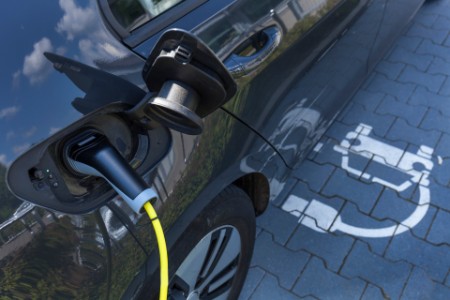
Chapter 1
New models of collaboration
Working together to achieve extraordinary outcomes
332 days
This is the number of days between scientists first publishing the genetic sequence of COVID-19 on 11 January 2020 and the morning of 8 December 2020, when the first person in the world received a vaccine as part of a mass-immunisation programme. To put this in context, the average time to develop a vaccine is 10 years.
This number obviously represents our hopes of a return to normality in 2021 – but the optimism it represents goes beyond that. Behind the extraordinary speed of vaccine development is cross-industry collaboration, government support and the ingenuity and dedication of scientists. It highlights the power of public-private partnerships and multilateralism, which in turn could address other societal challenges.
This is collaboration on a global scale. On a smaller scale, we’ve also seen people come together throughout the pandemic to support their community. We now know just how much we can achieve in adversity - and hopefully in better times too.
Related article

Chapter 2
Disruption fast-forward
From bricks to clicks
36.3% of retail sales
This is the percentage of retail sales that occurred online in the UK in January 2021, almost double the 19.3% recorded in January 2019. Retail was undergoing rapid change before the pandemic, but the last year took this to a new level. Retailers moved at an extraordinary pace, not only to meet a leap in demand for online sales, but also to adapt to changing consumer lifestyles - all whilst maintaining COVID-19 safe environments.
This number represents a major acceleration of change. When stores open, online sales will fall back, but EY’s Future Consumer Index indicates that they will remain considerably higher than pre-pandemic levels. Store closures hit record numbers in 2020 and have continued into 2021. Change that might have happened over years has happened in one. This rapid pace goes beyond channel shift. As people emerge from the crisis, our Future Consumer Index shows that they expect fundamental changes compared to how they live their lives pre-March 2020.
As ever, retail is at the vanguard of societal change, putting further pressure on those that can’t reshape quickly enough to meet changing consumer demands around affordability, purpose, and innovation. An additional trend is the rise of the contactless store, with zero tills featuring in the UK’s new Amazon grocery store.
Related article

Chapter 3
Communication revolution
The post pandemic office
5.5 million years
This is the amount of time that Zoom estimates that the global population spent on its app in 2020. Videoconferencing on this and other platforms was one of the last year’s biggest phenomenon – connecting loved-ones and allowing companies (including EY) to operate remotely in ways we’d never had imagined a year ago.
Last March it was as if we’d experienced an industrial revolution overnight and many businesses are currently wrestling with what permanent legacy remote working will leave. Working from home isn’t an option for everyone, but this last year has changed the parameters of what is possible and advantageous for employer and employee. Bank of England figures indicate that companies expect around a third of full-time employees to work from home at least one day a week from 2022 - compared to 14% in 2019.
This would have multiple layers of impact, from workplace culture to demand for office space, hospitality, and transport. A Barclays survey(pdf) published in October estimates that technology solutions could replace up to 34% of pre-COVID-19 business travel, creating an even bigger forecasting challenge and impact for airlines and hotels.

Chapter 4
Time to talk
Silence isn’t golden
25% of UK adults
This is the percentage of UK adults who said that they’d felt lonely often or some of the time in the first week of March 2021. The impact of the virus and the measures taken to control it have had a significant impact on mental health and wellbeing. There was already an increasing emphasis on these topics, but the widespread impact of lockdown has had the positive effect of making this a much greater part of the national conversation.
Businesses have been significant part of that conversation for some time, but lockdown increased their pastoral role by putting them at the front line of safety and increasing the importance of workforce engagement. According to the 2020 Pertemps Employment Trends Survey, more than eight in ten firms (82%) have increased communication with their staff to stay connected, while more than half of firms (54%) have increased their mental health and wellbeing assistance for employees throughout the pandemic.
Enhanced communication and support shouldn’t end with a return to the workplace. First, companies need to carefully manage this return. Beyond that, they have an opportunity to continue this more meaningful engagement. This last year has underlined once again that people are the heart of every business.
Related article

Chapter 5
The changing social contract
Purposeful business
125,000 companies
This is the number of UK companies that have currently paid back their furlough support to HMRC. They are under no legal obligation to do so. But public statements issued by companies repaying government support have made clear that they feel a stronger social contract between companies and society, and they feel an economic and moral obligation to pay what they can back into public finances.
This figure highlights the changing social contract between companies and society. Emphasis on corporate purpose was increasing before the pandemic, but COVID-19 has created even higher expectations. The focus on sectors and companies that have benefited from government support is clearly high, but all companies are now under higher levels of financial, social, and environmental scrutiny. Moreover, an increasing role for the state is intersecting with this trend. Government intervention had already increased in many economies, but COVID-19 has dramatically accelerated this trend, with governments acting decisively to protect their businesses and people during the crisis.
As economies recover, the direct influence of government will lessen, but the UK will remain a policy-driven economy and the spotlight on corporate impact will remain. The interaction between these forces – and pressure on the public purse – means that businesses need to be ready for greater policy intervention and tax increases in the medium term, as well as a high level of public scrutiny. As economies and societies reshape, so must business whilst keeping a clear understanding of their core purpose and their value to society.

Chapter 6
Sustainability tipping points
Electric dreams v reality
13% of new car sales
This is the percentage of car sales that were electric vehicles (EV) in February 2021. EVs were the only category to increase in a month where overall car sales fell by 35.5% year-on-year. As the UK prepares to play host to COP26 in 2021, it feels as if we’ve reached several tipping points in sustainability in the last year, from cars to food.
The speed at which change is happening raises significant questions. There is a huge infrastructure challenge ahead if the UK is to become an all-electric vehicle nation with enough charging points to meet demand. As we’ve seen over the last year, necessity can rapidly accelerate action and technological advances. But will new technology and behaviours overtake the electric revolution? There is an increasing debate around whether hydrogen, rather than electric, is the future of cars. And will ownership itself quickly become an outdated concept?
This drive towards sustainability is creating fascinating industry dynamics, in particular the convergence of energy and automotive sectors, both in the development of vehicles, charging points, and the generation of sustainable, energy to fuel them. Convergence and co-operation are major trends across a growing number of sectors, as end-to-end supply chains become longer and increasingly complex – and as technology and behaviour change move faster and faster.
Related article

Chapter 7
Illuminating inequality
Inclusive not exclusive
10 years
This is the time the UN predicts it will take to reverse the economic impact on women from the pandemic. In some parts of the world, improvements in equal pay have eroded to levels not seen since the 2008 financial crisis.
The pandemic has shone a brighter light on our society, highlighting some uncomfortable truths. It has clearly amplified structural inequalities and brought these into sharper focus. The economic and health impact has been disproportionately high for ethnic minorities. Home schooling has largely been women’s responsibility and favours already advantaged families. The virus has underlined differences in life expectancy between different areas of the UK– even different areas of the same city. We have a long way to go to address widening inequalities within our society.
Business has a significant role to play in addressing these issues. We need to create an environment in which diverse talents can flourish. A diverse and inclusive workplace, underpinned by a culture of belonging, can deliver significant benefits to individuals, the business community and wider society.
Conclusion
In this article we have only scratched the surface of the tremendous shifts that have taken place over the last 12 months. Businesses, CEOs and Boards have a key role in addressing many of the COVID-19 related challenges and will also need to build resilience to navigate an increasingly tech focused future. We recommend three areas of focus and action:
1. Reshaping: Rapid change means that many companies will need to reshape to help bring about a massive asset and job reallocation within the UK economy.
2. A focus on equality: Change is happening incredibly fast in so many areas of our lives, but not fast enough in many parts that really matter. Businesses can, and should, do more to make sure that no one is left behind.
3. Leading with purpose: Companies will increasingly do well by doing good. Customers and employees – and subsequently capital and value – are flowing towards organisations that can prove their long-term value to society.
Over the coming weeks we’ll explore each of these areas in more detail as we work with businesses across the UK to support economic and social recovery.
Summary
The last year brought tremendous change and it doesn’t end here. Explore seven extraordinary numbers that illustrate the fundamental and profound changes that have reshaped our world and how will companies respond to address these.


